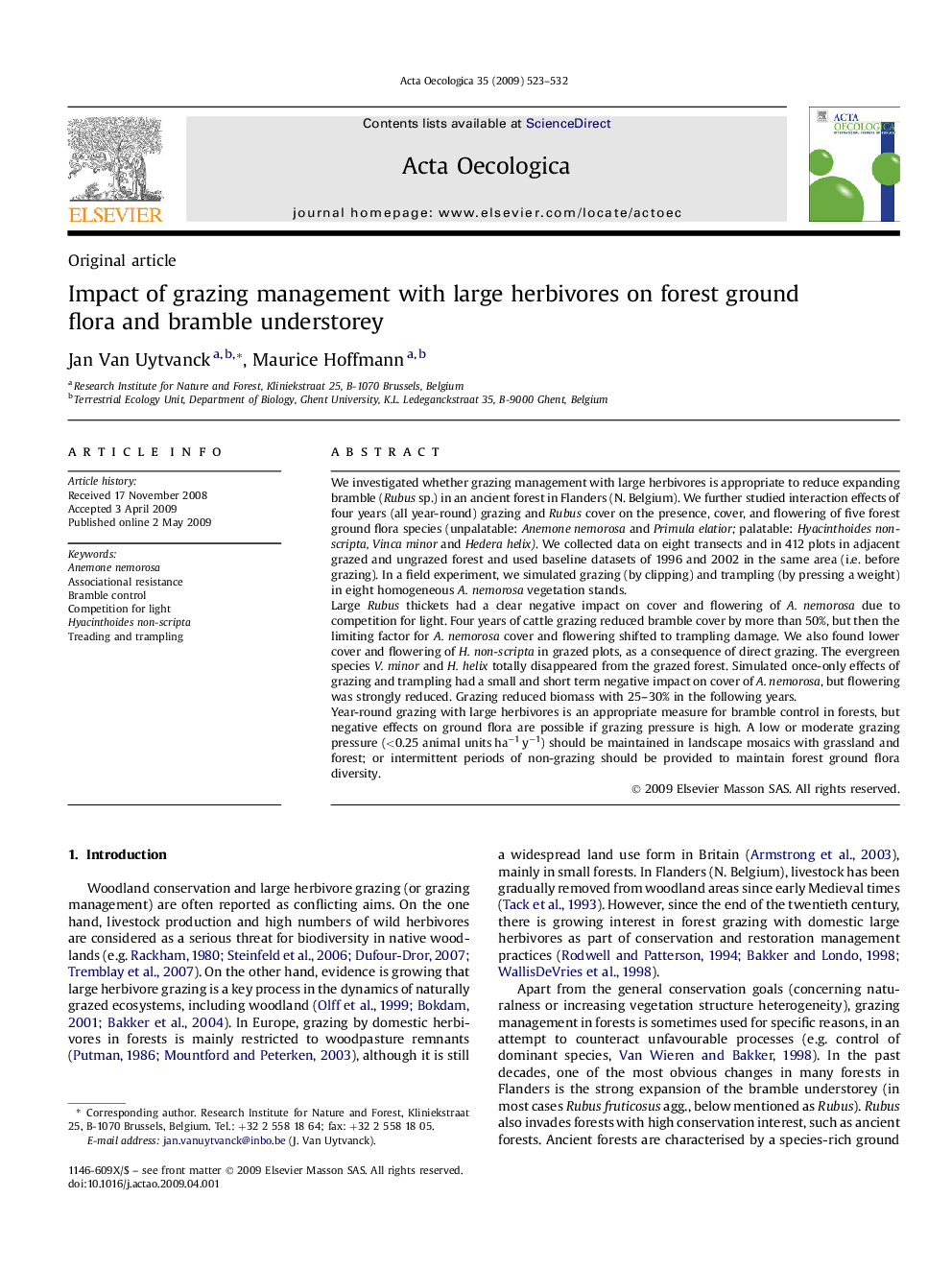| Article ID | Journal | Published Year | Pages | File Type |
|---|---|---|---|---|
| 4381214 | Acta Oecologica | 2009 | 10 Pages |
We investigated whether grazing management with large herbivores is appropriate to reduce expanding bramble (Rubus sp.) in an ancient forest in Flanders (N. Belgium). We further studied interaction effects of four years (all year-round) grazing and Rubus cover on the presence, cover, and flowering of five forest ground flora species (unpalatable: Anemone nemorosa and Primula elatior; palatable: Hyacinthoides non-scripta, Vinca minor and Hedera helix). We collected data on eight transects and in 412 plots in adjacent grazed and ungrazed forest and used baseline datasets of 1996 and 2002 in the same area (i.e. before grazing). In a field experiment, we simulated grazing (by clipping) and trampling (by pressing a weight) in eight homogeneous A. nemorosa vegetation stands.Large Rubus thickets had a clear negative impact on cover and flowering of A. nemorosa due to competition for light. Four years of cattle grazing reduced bramble cover by more than 50%, but then the limiting factor for A. nemorosa cover and flowering shifted to trampling damage. We also found lower cover and flowering of H. non-scripta in grazed plots, as a consequence of direct grazing. The evergreen species V. minor and H. helix totally disappeared from the grazed forest. Simulated once-only effects of grazing and trampling had a small and short term negative impact on cover of A. nemorosa, but flowering was strongly reduced. Grazing reduced biomass with 25–30% in the following years.Year-round grazing with large herbivores is an appropriate measure for bramble control in forests, but negative effects on ground flora are possible if grazing pressure is high. A low or moderate grazing pressure (<0.25 animal units ha−1 y−1) should be maintained in landscape mosaics with grassland and forest; or intermittent periods of non-grazing should be provided to maintain forest ground flora diversity.
